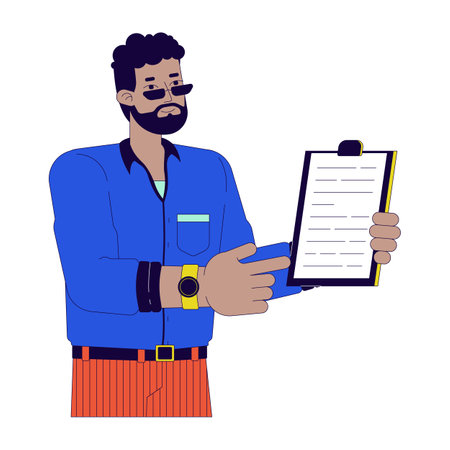Understanding the Indian Job Market and Interview Culture
Indias job market is a unique blend of tradition and rapid modernization, reflecting both its rich cultural heritage and dynamic economic growth. When preparing for job interviews in India, it is essential to understand the distinctive expectations and norms that shape the process. Indian employers often place great emphasis on not just academic qualifications or technical skills, but also on soft skills like adaptability, teamwork, and communication abilities. Etiquette plays a significant role; arriving on time, greeting interviewers respectfully (often with a polite “Good morning, sir/ma’am”), and dressing conservatively are basic yet crucial aspects. Candidates are frequently asked about their family background, values, and reasons for seeking a particular role—questions that highlight the importance of cultural fit and long-term commitment. Additionally, questions about previous experiences, willingness to relocate, and future aspirations are common. Understanding these nuances will help you approach interviews with greater confidence and develop a positive mindset tailored to Indias professional landscape.
2. Tapping Into Your Roots: Leveraging Cultural Values for Confidence
In the context of Indian job interviews, drawing strength from your cultural heritage can be a powerful way to boost confidence and develop a positive mindset. India’s rich traditions offer unique values—such as respect, humility, and family support—that are highly appreciated not only in personal life but also in professional environments.
Respect and Humility: Pillars of Indian Professionalism
Respect for elders, colleagues, and authority is deeply ingrained in Indian society. When you walk into an interview room with genuine respect and humility, it sets a positive tone and demonstrates emotional intelligence—a skill valued by many Indian employers. Instead of seeing humility as self-doubt, frame it as your willingness to learn and grow. This attitude will make you stand out from candidates who may appear overconfident or arrogant.
Family Support: A Source of Inner Strength
Family bonds play a crucial role in shaping your confidence. In India, families often act as pillars of support during times of change or challenge. Sharing your achievements with family members or seeking their blessings before an important interview can provide emotional reassurance and mental calmness. Embracing this tradition gives you a psychological edge; you’re reminded that your success is backed by generations of encouragement.
How Indian Values Empower Interview Success
| Indian Value | Practical Application in Interviews | Impact on Confidence |
|---|---|---|
| Respect (Sammaan) | Greeting interviewers with Namaste or polite English phrases; listening actively | Creates a positive first impression; builds rapport easily |
| Humility (Vinay) | Acknowledging areas for improvement; showing eagerness to learn | Demonstrates maturity and openness; reduces pressure to appear perfect |
| Family Support (Parivaar ka Sahara) | Drawing inspiration from family stories or blessings; staying grounded | Provides emotional stability; boosts morale under stress |
The Takeaway: Integrate Tradition with Ambition
Your Indian roots are not just part of your identity—they are assets you can leverage in professional situations. By consciously integrating respect, humility, and family backing into your preparation and presentation, you foster authentic confidence that resonates deeply with interviewers across India’s diverse workplaces.

3. Overcoming Self-Doubt: Tips to Break Stereotypes and Barriers
Many job seekers in India face self-doubt, often fueled by concerns about language proficiency, socio-economic background, or gender bias. These challenges can feel overwhelming, but it’s important to remember that confidence is built through mindset and action, not just circumstances. Here are practical ways to break free from stereotypes and empower yourself during interviews.
Addressing Language Proficiency Concerns
In India, English is often seen as a marker of education and professionalism, which can create anxiety for those who are not fluent. Remember, communication is about clarity, not accent or perfection. Practice speaking in English with friends or join local speaking clubs. Focus on expressing your thoughts clearly and concisely. Many successful professionals started with basic English and improved over time—your willingness to learn counts more than flawless grammar.
Tackling Socio-Economic Background Challenges
Your background does not define your potential. In interviews, highlight the unique skills and resilience you have gained from your experiences, whether it’s managing household responsibilities or working part-time while studying. Employers value determination and adaptability—qualities often found in people who have overcome challenges. Don’t hesitate to share your story with pride; it reflects your strength.
Navigating Gender Bias with Confidence
Gender bias remains a reality in some sectors, but progress is being made every day across India. Approach interviews with the belief that your abilities are what matter most. If faced with biased questions or attitudes, respond calmly and focus on your skills and achievements. Build networks with supportive mentors and peers; organizations like Women Who Code India or NASSCOM offer resources for empowerment.
Practical Strategies for Staying Positive
Prepare thoroughly for each interview and visualize success—imagine yourself answering confidently and connecting well with the interviewer. Maintain positive self-talk; remind yourself of your achievements and growth journey. Lastly, surround yourself with people who uplift you, whether family, friends, or professional groups. Every step forward breaks barriers—not just for you, but for others like you across India.
4. Practical Mindset Exercises for Daily Practice
Building confidence and a positive mindset for job interviews in India requires consistent daily practice, especially considering the unique cultural landscape and expectations present in Indian workplaces. The following practical exercises are tailored specifically for Indian job seekers, blending traditional wisdom with modern psychological techniques.
Meditation: Harnessing Traditional Wisdom
Meditation has deep roots in Indian culture and is a powerful tool for calming nerves and centering your thoughts before high-pressure situations like job interviews. Dedicate 10–15 minutes each morning to simple breathing or guided meditation, focusing on gratitude or positive intentions for the day. This regular practice can help manage anxiety and improve self-awareness, both of which are crucial for interview success.
Affirmations: Empowering Self-Talk
Positive affirmations are statements that reinforce your abilities and boost self-confidence. For Indian job seekers, crafting affirmations in English or your mother tongue can make them more relatable and effective. Repeat these affirmations daily, especially before interviews or important meetings. Here are some examples:
| Affirmation (English) | Affirmation (Hindi) | When to Use |
|---|---|---|
| I am prepared and confident for my interview. | मैं अपने इंटरव्यू के लिए तैयार और आत्मविश्वासी हूं। | Morning or pre-interview |
| I have valuable skills to offer any organisation. | मेरे पास किसी भी संस्था को देने के लिए महत्वपूर्ण कौशल हैं। | During preparation |
| I learn from every experience and grow stronger. | मैं हर अनुभव से सीखता हूं और मजबूत बनता हूं। | Post-interview reflection |
Visualization: Seeing Success Before It Happens
Visualization is another potent technique, especially useful in the context of Indian job interviews where competition is intense. Spend a few minutes each day imagining yourself entering the interview room with confidence, greeting the panel with a smile, answering questions articulately, and leaving the room feeling accomplished. This mental rehearsal primes your mind for actual success by reducing fear of the unknown.
Cultural Integration Tips
Tip 1: Include elements from your own background—such as picturing yourself wearing formal Indian attire or greeting interviewers respectfully with a Namaste—to make visualization more authentic.
Tip 2: Seek support from family or friends; sharing affirmations or meditating together can build collective positivity, reflecting Indias community-oriented values.
Summary Table: Mindset Exercises at a Glance
| Technique | Description | Cultural Adaptation | Frequency |
|---|---|---|---|
| Meditation | Sit quietly, focus on breath or mantra to calm nerves. | Use Sanskrit chants or local language mantras. | Daily, 10–15 mins |
| Affirmations | Repeat positive statements about abilities and growth. | Create in English/Hindi/regional language. | Daily & pre-interview |
| Visualization | Mental rehearsal of successful interview scenarios. | Add local customs (e.g., Namaste greeting). | Daily, 5 mins before sleep/morning |
5. Effective Body Language and Communication in Indian Context
Mastering effective body language and communication is key to building confidence and leaving a lasting impression during job interviews in India. Interviewers notice not just what you say, but also how you present yourself. In the Indian context, cultural nuances play an essential role in non-verbal communication and the way English is spoken.
Non-Verbal Cues that Matter
Your posture, eye contact, hand gestures, and facial expressions speak volumes before you even answer a question. Sit upright to project alertness and self-assurance. Maintain steady but respectful eye contact—while direct gaze shows confidence, remember that in some Indian settings, too much intensity may be seen as disrespectful. A gentle nod when listening signals understanding and interest, which interviewers appreciate.
Using Gestures and Space Appropriately
In India, using open hand gestures while speaking can make your communication appear sincere and transparent. Avoid crossing your arms or fidgeting, as these actions may be perceived as nervousness or defensiveness. Respect personal space; don’t lean too far forward or backward. These subtle cues help build rapport with panel members from diverse backgrounds.
Speaking English with Indian Expressions
Many Indian interviews are conducted in English but often include local expressions and phrases. To connect authentically, use polite forms such as “Sir,” “Madam,” or address panelists by their titles, which demonstrates respect—a valued trait in Indian workplaces. Phrases like “With due respect,” “As per my understanding,” or “I would like to highlight” blend professional English with familiar Indian courtesy.
Clarity and Tone
Speak clearly and at a moderate pace. Avoid using slang or overly complex vocabulary; instead, focus on clarity and correctness. If you feel nervous, take a brief pause before answering—this is both acceptable and shows thoughtfulness in Indian professional culture. Practicing common interview questions aloud with friends or mentors can help you refine your tone and boost fluency.
Connecting Genuinely
The ultimate goal is to combine positive body language with culturally aware spoken English so that you come across as confident yet approachable. This balance will enable you to form genuine connections with interview panels, making it more likely for them to remember you positively and see you as a great fit for their organization.
6. Learning from Failure: Real-life Success Stories
It is natural to feel disheartened after facing rejection in a job interview, but many successful Indians have turned such setbacks into stepping stones for greater achievements. For instance, Dr. A.P.J. Abdul Kalam, before becoming the “Missile Man of India” and the President, faced numerous rejections early in his career. Yet, his perseverance and positive attitude helped him rise above failures and eventually make significant contributions to India’s scientific advancement.
Another inspiring example is Kiran Mazumdar-Shaw, founder of Biocon. She was repeatedly told that women could not succeed in biotechnology or business in India. Facing rejection from multiple employers, she instead chose to start her own company from a rented garage in Bangalore. Her resilience and optimistic mindset transformed Biocon into one of Asia’s leading biotechnology firms.
These stories highlight the Indian value of “zidd”—the stubborn determination to keep going despite obstacles. Each failure is seen as an opportunity to learn and grow rather than a reason to give up. This approach is deeply rooted in Indian culture, where family and community often encourage individuals to try again with renewed energy.
When preparing for your next job interview, remember these real-life success stories. Understand that even if you do not succeed at first, there is always scope for improvement and another chance ahead. Cultivating a positive mindset and learning from past experiences is what ultimately leads to success.
Let these stories inspire you to stay motivated, develop confidence, and never lose hope—because every rejection brings you one step closer to your dreams.
7. Building Support Systems: Family, Mentors, and Community Networks
In India, the strength of community is a unique advantage when preparing for job interviews. Our families, mentors, and local networks provide us with valuable guidance and emotional support that can make a significant difference in our confidence levels. Leveraging these relationships can help you maintain a positive mindset even when facing tough competition or setbacks.
The Role of Family Encouragement
For many Indians, family forms the backbone of emotional resilience. Seek encouragement from your parents, siblings, or extended family members. Their belief in your abilities can be a powerful motivator to keep you focused and confident. Share your interview experiences with them; sometimes, their perspective helps you see things differently and reminds you of your strengths.
Mentorship: Guidance from Experience
Finding a mentor—be it a teacher, senior colleague, or someone from your community who has navigated similar paths—is invaluable. A mentor not only offers advice on cracking interviews but also shares real-world experiences about managing anxiety and overcoming self-doubt. In Indian professional circles, mentorship is often informal but immensely impactful. Don’t hesitate to reach out to alumni networks or local professionals through platforms like LinkedIn or WhatsApp groups.
Utilising Community Networks
India’s rich tapestry of community organisations—such as student associations, professional forums (like NASSCOM or CII), religious groups, or neighbourhood collectives—can be instrumental in your preparation journey. Participate in mock interviews, group discussions, and knowledge-sharing sessions organised by these communities. These activities not only help refine your skills but also expose you to diverse perspectives, boosting your confidence further.
The Power of Peer Support
Your friends and peers are going through similar challenges. Forming study groups or peer circles where you practice interviews together can be highly effective. Give constructive feedback to each other and celebrate small wins—every step forward counts.
Staying Connected for Ongoing Success
Remember, building confidence is not a one-time event but a continuous process. Stay connected with your support systems even after you land a job. Their encouragement and wisdom will continue to empower you as you grow in your career. By embracing the collective strength of family, mentors, and community networks—the hallmark of Indian society—you can face every job interview with renewed positivity and self-assurance.

